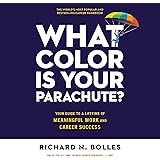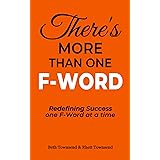We’ve all been there: standing at a career crossroads, bombarded by an onslaught of well-intentioned but often contradictory advice. Perhaps a mentor insists you should always be vigilant for your next opportunity, while a friend advises you to hold steady for at least two years. The cacophony of voices and outdated career norms, especially in our rapidly evolving job market, can make the prospect of switching jobs feel incredibly daunting. Understanding which pieces of advice are truly helpful versus those that are simply myths can empower you to make more confident career decisions.
The accompanying video dives into several prevalent myths surrounding career transitions and switching jobs. It highlights how the modern employment landscape, profoundly reshaped by global events and technological advancements, has rendered much conventional wisdom obsolete. This article will further unpack these insights, providing a deeper dive into current best practices and offering a fresh perspective on navigating your professional journey with greater clarity and purpose.
Navigating Your Next Career Move: Should You Always Be Job Hunting?
The notion of perpetually scanning the job market for your next big break has been a persistent piece of career advice for decades. It suggests a proactive approach to professional growth, ensuring you are always positioned for advancement. However, as the video aptly points out, constantly being “this close” to switching jobs can foster a state of perpetual restlessness rather than genuine satisfaction. New research challenges this traditional wisdom, suggesting a more balanced perspective is often healthier and more productive for your career development.
Interestingly, recent polls reveal that not all job changes result in improved circumstances. A significant one in five workers who voluntarily left their positions later wished they had remained in their old roles. Furthermore, only a quarter of individuals who transitioned to new jobs reported sufficient satisfaction to commit to their new employers long-term. This data indicates that the grass is not always greener, and a new opportunity does not automatically guarantee increased happiness or better conditions. Instead, focusing on continuous learning and skill development within your current role can often lead to substantial growth.
Indeed, a substantial three-quarters of job switchers ultimately reported that their new position or company significantly differed from their initial expectations. Consequently, half of these individuals found themselves wishing they could return to their previous employment. This underscores the importance of thorough due diligence and a clear understanding of your career values before making any major move. If you genuinely enjoy your current position, despite minor imperfections, and find ample opportunities for skill development and personal growth, then continuously searching for something new might be counterproductive to your overall well-being and professional trajectory.
Reassessing the Two-Year Job Rule for Career Growth
For many years, the unwritten rule dictated that remaining in a job for at least two years was essential to avoid appearing disloyal or unstable on your resume. This advice stemmed from an era when long tenures were the norm and frequent job changes were viewed with suspicion by potential employers. However, the modern talent acquisition landscape has evolved considerably, and hiring managers are increasingly understanding of shorter stints, especially given the dynamic nature of today’s work environment. The belief that brief periods of employment irrevocably harm a resume is largely outdated.
In fact, HR expert John Sullivan confirms that employers now broadly accept that shorter employment periods are simply a part of contemporary professional life. People are particularly prone to exploring new opportunities around their first, second, or third work anniversaries. Millennials, for instance, demonstrate a pronounced tendency for shorter tenures, with a striking 70% choosing to move on from their jobs within two years. This shift reflects evolving career priorities, a desire for diverse experiences, and often, an imperative to acquire new skills rapidly in a competitive market.
While the impact on your resume is less severe than it once was, it is prudent to consider the personal toll of frequent job hopping. Constantly adapting to new company cultures, building new professional relationships, and re-establishing your credibility can be emotionally draining. For example, moving from a role every 12-18 months might provide varied experience but could also lead to burnout from the continuous adjustment period. Therefore, while a short tenure won’t likely torpedo your next career move, weighing the personal investment required for each new start is a critical consideration for your long-term professional satisfaction.
Understanding Gaps: Can You Leave a Job Without Another One Lined Up?
The traditional wisdom sternly cautioned against resigning from a position without another job offer firmly in hand. This advice was rooted in the idea that potential employers frowned upon unexplained resume gaps, perceiving them as red flags. The underlying assumption was that one should maintain continuous employment throughout their entire career. However, this perspective often fails to account for the complexities of modern life and the various personal and professional circumstances that necessitate a break from the workforce.
Realistically, life events frequently dictate the need for a temporary hiatus. Relocating to support a partner’s career, stepping away to care for an ailing family member, or simply needing a period of decompression due to severe burnout are all legitimate reasons to take a break. Career coach Priscilla Claman identifies two critical scenarios where leaving without a new job is not only acceptable but advisable: first, when illegal or unethical activities are rampant in the workplace; and second, when your current role is significantly eroding your physical or mental health. In these instances, prioritizing your well-being over continuous employment is paramount.
Moreover, the stigma associated with employment gaps has significantly diminished, particularly in the wake of recent global events. The pandemic, for example, led to widespread job losses and necessitated career breaks for countless individuals, making resume gaps far more common and understandable. Employers today are increasingly empathetic to varied career paths and recognize that periods of unemployment can arise from legitimate, unavoidable circumstances. Therefore, if your financial situation permits and your current work environment is genuinely detrimental, taking a planned break before switching jobs is a viable and often healthy option.
The Value of Lateral Career Shifts: Beyond Title and Pay
For decades, the standard model for career progression involved a relentless pursuit of higher titles, increased responsibilities, and substantial salary increases. The prevailing belief was that any job switch that didn’t offer a clear upward trajectory was simply not worth pursuing. This linear view of career development, however, largely originates from the hierarchical corporate structures prevalent in earlier eras. Today’s organizations are often much flatter, presenting fewer traditional advancement levels and requiring a re-evaluation of what constitutes true career growth.
Instead of fixating solely on title and compensation, modern career strategists advocate for a focus on more intrinsic motivators. Research consistently shows that beyond a comfortable baseline income, additional money and prestigious titles do not proportionally increase job satisfaction or overall happiness. Consequently, pursuing a lateral move that offers enriching experiences can be far more beneficial for long-term career fulfillment. Such a move might involve transitioning to a different department or taking on a new role with similar seniority but different core responsibilities, broadening your skillset and perspective without a direct promotion.
Instead of chasing superficial metrics, individuals should prioritize what truly matters for their professional development and personal well-being. Consider swapping in values like increased autonomy, which grants greater control over your work; opportunities for mastery, allowing you to deepen your expertise; a stronger sense of purpose, aligning your work with your values; or improved work-life balance, fostering overall health. A job switch that delivers these profound benefits, even if it’s a lateral step, can significantly enhance your long-term career satisfaction and personal growth, offering a richer professional experience than merely climbing the corporate ladder.
Evaluating Counteroffers: Proceed with Caution When Switching Jobs
When you signal your intent to leave, especially as a valuable employee, it is common for your current employer to present a counteroffer. These offers often arrive wrapped in flattery, promises of improved conditions, and perhaps even an immediate raise. While it’s natural to feel valued and consider such a proposal, exercising extreme caution is crucial. Accepting a counteroffer can frequently backfire, leading to renewed dissatisfaction and a disrupted professional path for both you and your company.
As talent expert Claudio Fernandez-Araoz astutely observes, the fundamental reasons that initially prompted your job search are rarely addressed by a reactive counteroffer. For example, if you were seeking more challenging projects or a better work-life balance, a salary bump alone will not resolve those underlying issues. Historical data, particularly from pre-pandemic analyses by recruiters, indicates that a significant 50% of employees who accept counteroffers reinitiate their job search within merely 90 days. An even more striking 80% either depart voluntarily or are terminated within 6 to 12 months after accepting a counteroffer.
These statistics reveal a clear pattern: accepting a counteroffer often delays, rather than resolves, the core problems. The initial breach of trust, or the unaddressed systemic issues within the company, typically resurface. While it is always wise to respectfully hear out any counterproposal from your employer, it is imperative to revisit and critically analyze the original motivations behind your decision to seek new employment. A truly sound decision regarding switching jobs involves a thorough evaluation of both alternatives, determining which path genuinely aligns with your future aspirations and provides the lasting satisfaction you seek, rather than merely offering a temporary reprieve.









